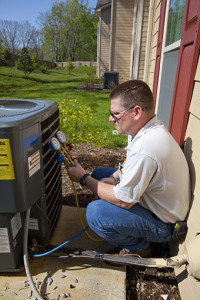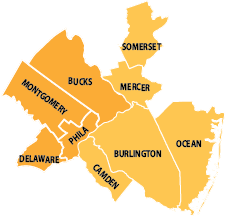Heating and Air Conditioning FAQ’s

- Do I really need preventive maintenance every year?Just as you would never run your car for years on end without changing your oil – your Heating and Air Conditioning equipment requires yearly maintenance to help it last as long as it should. Preventive Maintenance can prevent costly repairs and maintain the maximum efficiency of your system, in turn saving you money on your gas and electric bill.
With a Maintenance Agreement you will get priority customer status! On the coldest day of winter or the hottest day of summer, if you have a problem, you will be at the top of our list, ahead of those without Maintenance Agreements.Our Preventative Maintenance Agreement customers also receive reduced pricing on all parts and labor. Become a Premiere Maintenance Member today!
- What kind of filters should I use?There are several grades of filtration available to the homeowner. The most commonly used is the regular 3% fiberglass throw away filter. These must be replaced monthly and even when they are in the system they don’t stop much particulate. Another low efficiency filter is the “hogshair” type washable filter, which have the same downfall as the fiberglass type. A type that is a lot more efficient but very labor intensive is the electrostatic, sometimes known as “Neutron” filter. These filters are very efficient but get blocked quickly and require constant cleaning.
The type of filter I highly recommend is the 40% pleated type filter. 3M Filtrate is a common brand of these filters. They cost a little more, up to $15, but they will last you from 3-6 months between changing, don’t produce much resistance in airflow, and remove from 30-60% of the particulate in the air. The dirtier they get the better they work. They utilize a fabric like material instead of a mesh or loose fiberglass. Because they are pleated the surface area to trap the dirt is greatly increased. I feel so strongly about these filters that I include one with every inspection I do for my contract customers. All of the above filters are 1″ filters, that is they fit into a standard filter opening in your furnace or air handler. You have other options which are electronic air cleaners, Space Guard filters, HEPA (not really practical), Air Bear, among others. The Trane Clean Effects is the most efficient out of the bunch!
- Should I get my ducts cleaned?Quite honestly for most people that answer is no! If you have a newer home that your system was not used during construction you probably don’t need it done. If your house is a little older and you never used good filtration or never changed your filter, then it is probably not a bad idea. Once you have it done, and you take care of your system afterwards you will probably never have to do it again, unless you have a lot of shedding animals, mold issues, or have smokers in the home. The problem really comes to the forefront when you have to pick a company to perform your duct cleaning.
You can not have your ducts cleaned in an average size home for under $350 and have it done right. Duct cleaning is a very labor-intensive job when done properly. It takes several hours. From what I have seen a majority of the guys doing the duct cleaning do not do it properly. In my area, Eastern Montco and Central Bucks, there only a few companies that do the job properly, are clean while they are working, guarantee their work, and have a long and stable reputation as being the best in their industry. We have partnered with one of the best in the area so we can have this done for you. I think the best time to have this done is around the time you are having your system replaced.
- How do I find a good contractor?Look no further you found K.E. Seifert, Inc.! Just kidding! Ask your friends. Don’t heed their advice if the best thing they can say is how cheap they got the job done for. That is not going to always be the best job. Call your local utility, they usually recommend good qualified contractors. Don’t always look for the biggest contractor either. A company is only as good as the people working for it. Look for personalized service. Find someone you can be comfortable dealing with. Ask them for referrals. See how honest they are, see if they offer you alternatives. Find someone who is clean, do they wipe their feet when they come in your house? Are they polite? Is their truck fairly clean? Do they mind answering your questions? Do they mind you watching them work? I could go on and on. Do not always pick the biggest ad in the Yellow Pages. One of the companies in my area that has the biggest ad are the biggest crooks. Be careful, do your homework.
- If my heat exchanger is cracked do I need to replace my furnace?Not necessarily. If your heat exchanger has a hole in it I would say yes. If you had multiple cracks that are very large I would say yes. Cracks are very common in older furnaces. They expand and contract with the heat level in the furnace. When they do expand, due to the heat, the blower keeps the heat exchanger pressurized not allowing any dangerous gasses to escape into the living area. If these openings are large enough they can force the flame out the wrong end of the furnace and this is dangerous. Should you consider replacement if you are told you have cracks? It is probably not a bad idea. First ask the technician how he determined you had the cracks. Next, ask him to show you the cracks or his determining reasons. If he says you have a “hole” in your heat exchanger he should probably condemn it and not allow you to use it. I condemn if the blower causes flame to rollout, or if there is a large enough opening where the flame or gasses are entering the air stream.
- What is the lifespan of my equipment?What I am about to give you are generalities and do not apply for every piece of equipment.
- Gas Furnaces 17-20 years
- Air Conditioners 15-18 years
- Heat Pumps 12-14 years
- Gas Boilers 18-25 years
- Oil Furnace 17-20 years
Equipment produced today will not last as long as equipment made 30 and 40 years ago. Properly maintained equipment will last longer than non-maintained equipment. These are general references not laws. Some of my colleagues will disagree with me. Today’s efficiencies can be almost double of what they were just ten years ago. That means if you replace your system it could cut your energy costs almost in half. A new system can sometimes pay for itself in as little as 3 or 4 years.






